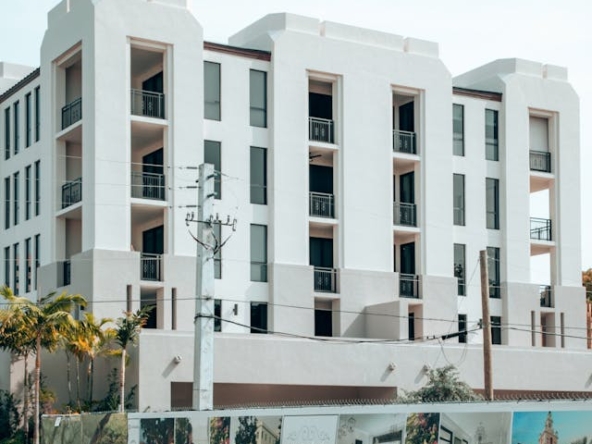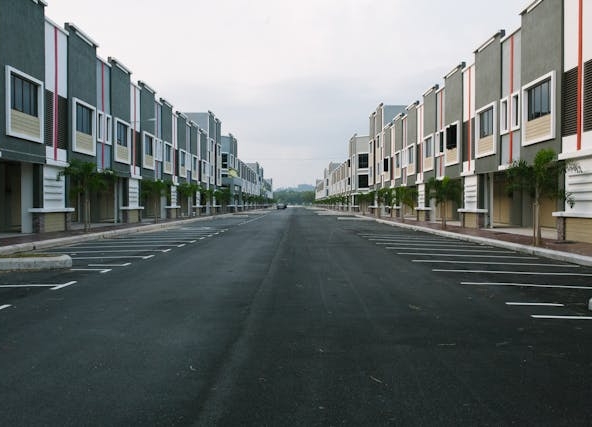Residential property valuation is the process of determining the market value of a home or residential property. For Winnipeg homeowners, understanding this process is crucial when buying, selling, or refinancing a property.
This guide will provide you with essential information about residential property valuation in Winnipeg, Manitoba, Canada.
Key Takeaways
- Residential property valuation is essential for buying, selling, and refinancing homes in Winnipeg
- Market value is influenced by factors such as location, property condition, and local real estate trends
- Comparative market analysis and professional appraisals are common methods used in Winnipeg for property valuation
- Understanding the Winnipeg real estate market is crucial for accurate property valuation
- Home improvements and maintenance can significantly impact a property’s value
- Seasonal factors in Winnipeg can affect property valuations

Understanding the Basics of Residential Property Valuation
Residential property valuation is a critical aspect of the real estate market in Winnipeg. It involves assessing the worth of a residential property based on various factors and market conditions. This process is essential for homeowners, buyers, sellers, and real estate professionals alike.
In Winnipeg, property valuation is influenced by several factors unique to the city and its real estate market. The city’s diverse neighborhoods, from the historic Exchange District to the suburban areas of Charleswood, each have their own characteristics that impact property values.
The Importance of Accurate Property Valuation
Accurate property valuation is crucial for several reasons. For sellers, it helps in setting a competitive and fair asking price. Buyers rely on property valuations to ensure they’re making a sound investment. Lenders use these valuations to determine the amount they’re willing to lend for mortgages.
In Winnipeg’s dynamic real estate market, where prices can vary significantly between neighborhoods like Osborne Village and River Heights, having an accurate valuation is particularly important. It helps in making informed decisions and avoiding potential financial pitfalls.
Key Factors Influencing Property Value in Winnipeg
Several factors play a role in determining the value of a residential property in Winnipeg. These include:
- Location: Proximity to amenities, schools, and public transport
- Property size and layout
- Age and condition of the property
- Recent renovations or upgrades
- Local real estate market trends
- Economic factors in Winnipeg and Manitoba
Understanding these factors can help homeowners and buyers better interpret property valuations and make informed decisions in the Winnipeg real estate market.

Methods of Residential Property Valuation in Winnipeg
There are several methods used for residential property valuation in Winnipeg. Each method has its strengths and is suitable for different situations.
Comparative Market Analysis (CMA)
Comparative Market Analysis, or CMA, is a common method used by real estate agents in Winnipeg. This method involves comparing the property in question to similar properties that have recently sold in the same area.
In Winnipeg, where neighborhoods can vary greatly in character and price range, a CMA might compare homes in specific areas like Wolseley or St. Boniface. This method takes into account recent sales, current listings, and properties that were listed but didn’t sell.
Professional Appraisal
A professional appraisal is a detailed evaluation of a property’s value conducted by a licensed appraiser. In Winnipeg, appraisers must be licensed by the Appraisal Institute of Canada.
Professional appraisals are often required by lenders for mortgage purposes. They involve a thorough inspection of the property and consideration of various factors including the property’s condition, size, and location within Winnipeg.
Automated Valuation Models (AVMs)
Automated Valuation Models are computer-generated estimates of property values. While less common in Winnipeg for official valuations, they’re often used by real estate websites to provide quick estimates.
These models use data from public records and recent sales to estimate a property’s value. However, they may not account for recent renovations or unique features of a property, which are common in older Winnipeg neighborhoods like Crescentwood or North End.

The Role of Location in Winnipeg Property Valuation
In Winnipeg, location plays a crucial role in property valuation. The city’s diverse neighborhoods each have their own character and appeal, which significantly impacts property values.
Neighborhood Impact on Property Value
Different neighborhoods in Winnipeg can have vastly different property values. For example, properties in upscale areas like Tuxedo or River Heights often command higher prices than those in other parts of the city.
Factors that influence a neighborhood’s desirability include:
- Proximity to downtown Winnipeg
- Access to public transportation, including bus routes and the future rapid transit corridors
- Quality of local schools
- Nearby amenities such as parks, shopping centers, and recreational facilities
- Crime rates and overall safety of the area
Proximity to Amenities and Services
The closeness of a property to various amenities and services can significantly impact its value. In Winnipeg, properties near popular attractions like The Forks, or close to major shopping centers like Polo Park, often see increased valuations.
Access to good schools is another crucial factor. Properties in school catchment areas for highly-rated schools, such as Kelvin High School or Vincent Massey Collegiate, often see higher valuations.
Future Development Plans
Upcoming development plans in Winnipeg can also influence property values. For instance, areas near the planned rapid transit corridors or in neighborhoods slated for revitalization may see increased property values in anticipation of these improvements.
The Impact of Property Condition on Valuation
The condition of a property is a significant factor in its valuation. In Winnipeg, where the housing stock ranges from century-old character homes to new builds, property condition can vary widely and greatly impact value.
Age and Maintenance
The age of a property and how well it has been maintained are key considerations in valuation. Older homes in Winnipeg, particularly those in historic neighborhoods like Crescentwood or Wolseley, can be highly valued if well-maintained and updated.
Regular maintenance and timely repairs are crucial. In Winnipeg’s climate, with its harsh winters and hot summers, proper maintenance is especially important to prevent weather-related damage and maintain property value.
Renovations and Upgrades
Renovations and upgrades can significantly boost a property’s value. In Winnipeg, where many homes were built in the early to mid-20th century, updated kitchens, bathrooms, and energy-efficient windows are particularly valuable.
However, it’s important to note that not all renovations offer the same return on investment. In Winnipeg’s market, practical upgrades like finishing a basement or adding an extra bathroom often provide better returns than luxury additions.
Energy Efficiency
Given Winnipeg’s extreme climate, energy efficiency is an increasingly important factor in property valuation. Homes with energy-efficient features like high-quality insulation, energy-efficient windows, and modern HVAC systems are often valued higher due to lower operating costs.

Seasonal Factors Affecting Property Valuation in Winnipeg
Winnipeg’s distinct seasons can have a noticeable impact on property valuations throughout the year.
Winter Considerations
Winnipeg’s harsh winters can affect property valuations in several ways. Homes with features that stand up well to winter conditions, such as south-facing driveways (for quicker snow melt) or attached garages, may be valued higher.
Winter can also be a challenging time for property viewings and inspections. Snow cover may hide exterior features or potential issues, potentially affecting valuations.
Summer Appeal
In contrast, summer can showcase a property’s outdoor features. Homes with well-maintained yards, decks, or pools may see increased valuations during the warmer months when these features are most appealing.
The summer months also tend to be the busiest for Winnipeg’s real estate market, which can impact property valuations due to increased demand.
Understanding Market Trends in Winnipeg
To accurately value a property in Winnipeg, it’s essential to understand current market trends.
Supply and Demand Dynamics
Like any market, Winnipeg’s real estate market is influenced by supply and demand. Areas with high demand and low supply, such as desirable neighborhoods like Riverview or Crescentwood, often see higher property valuations.
Economic Factors
Broader economic factors also play a role in property valuation. Winnipeg’s diverse economy, with strengths in sectors like manufacturing, transportation, and healthcare, provides stability to the real estate market. However, economic shifts can still impact property values.
Interest Rates and Mortgage Trends
Interest rates and mortgage trends can significantly impact the Winnipeg real estate market and, consequently, property valuations. Lower interest rates typically lead to increased buying power, which can drive up property values.
Professional Valuation vs. DIY Assessment
While many resources are available for homeowners to estimate their property’s value, professional valuations remain the most reliable method.
Benefits of Professional Valuation
Professional valuations offer several advantages:
- Expertise in local market conditions
- Objective assessment of property condition
- Consideration of factors that may be overlooked in DIY assessments
- Credibility with lenders and potential buyers
Limitations of DIY Assessments
While DIY assessments can provide a rough estimate, they often lack the depth and accuracy of professional valuations. Homeowners may overlook important factors or be biased in their assessment.
When to Opt for Professional Valuation
Professional valuations are particularly important in certain situations:
- When applying for a mortgage
- Before listing a property for sale
- For tax assessment appeals
- In legal situations such as divorce proceedings
The Role of Real Estate Agents in Property Valuation
Real estate agents play a crucial role in property valuation in Winnipeg.
Comparative Market Analysis by Agents
Real estate agents often provide Comparative Market Analyses (CMAs) to help sellers price their homes or to help buyers understand the local market. These analyses draw on the agent’s local knowledge and access to recent sales data.
Local Market Knowledge
Winnipeg real estate agents bring valuable local market knowledge to the valuation process. They understand neighborhood-specific trends and can provide insights that may not be apparent from data alone.
Negotiation Based on Valuation
Accurate property valuation is crucial for effective negotiation in real estate transactions. Agents use their understanding of property values to help clients make or respond to offers effectively.
Legal Aspects of Property Valuation in Winnipeg
Property valuation in Winnipeg is subject to various legal considerations.
Property Assessment and Taxation
In Winnipeg, properties are assessed by the City of Winnipeg Assessment and Taxation Department. These assessments are used to determine property taxes and are conducted every two years.
Challenging Property Assessments
Homeowners have the right to challenge their property assessment if they believe it’s inaccurate. This process involves filing an appeal with the Board of Revision.
Disclosure Requirements
When selling a property in Winnipeg, there are legal requirements for disclosure of certain information that could affect the property’s value. This includes known material latent defects.
Future Outlook for Residential Property Valuation in Winnipeg
The future of residential property valuation in Winnipeg is likely to see some changes and developments.
Technological Advancements
Advancements in technology, such as more sophisticated Automated Valuation Models and the use of big data, may play an increasing role in property valuation.
Changing Market Dynamics
Factors such as changing demographics, evolving work patterns (like increased remote work), and urban development plans will continue to shape Winnipeg’s real estate market and impact property valuations.
Environmental Considerations
With increasing awareness of climate change, factors like flood risk and energy efficiency are likely to play a growing role in property valuation in Winnipeg.
Here are data-driven facts about effective strategies for residential property valuation:
- Using comparable sales data is an effective strategy for residential property valuation. This involves analyzing the sales prices of similar properties in the same neighborhood to determine the value of the subject property. (Realtor.com)
- Considering the location, size, and condition of the property are also important factors in residential property valuation. Location can significantly impact property value, while size and condition can also influence the final valuation. (Investopedia)
- Using automated valuation models (AVMs) can also be an effective strategy for residential property valuation. AVMs use algorithms to analyze data on recent sales of similar properties, location, and other factors to estimate the value of a property. (Zillow)
- Considering the local real estate market trends is another effective strategy for residential property valuation. Factors such as supply and demand, interest rates, and economic conditions can significantly impact property values. (Redfin)
Residential property valuation in Winnipeg is a complex process influenced by a wide range of factors. From location and property condition to market trends and seasonal considerations, many elements come into play when determining a property’s value.
While DIY assessments can provide a starting point, professional valuations remain the most reliable method for accurate property valuation. Real estate agents, with their local market knowledge and expertise, play a crucial role in this process.
As Winnipeg’s real estate market continues to evolve, staying informed about the factors influencing property values will be essential for homeowners, buyers, and investors alike. By understanding these factors and the valuation process, you’ll be better equipped to navigate Winnipeg’s real estate market successfully.
| Neighborhood | Average Home Price (2023) | Year-over-Year Change |
|---|---|---|
| River Heights | $450,000 | +5.2% |
| Osborne Village | $320,000 | +3.8% |
| Wolseley | $380,000 | +4.5% |
| St. Boniface | $340,000 | +4.1% |
| Charleswood | $420,000 | +5.5% |
| Home Improvement | Average Return on Investment in Winnipeg |
|---|---|
| Kitchen Remodel | 75-80% |
| Bathroom Remodel | 70-75% |
| Basement Finish | 65-70% |
| Window Replacement | 60-65% |
| Deck Addition | 55-60% |
- Factors that can negatively impact property valuation in Winnipeg:
- Proximity to high-traffic areas or noisy infrastructure
- Outdated or poorly maintained interiors
- Lack of energy-efficient features
- Poor curb appeal or landscaping
- Location in flood-prone areas
- Distance from public transportation and amenities




